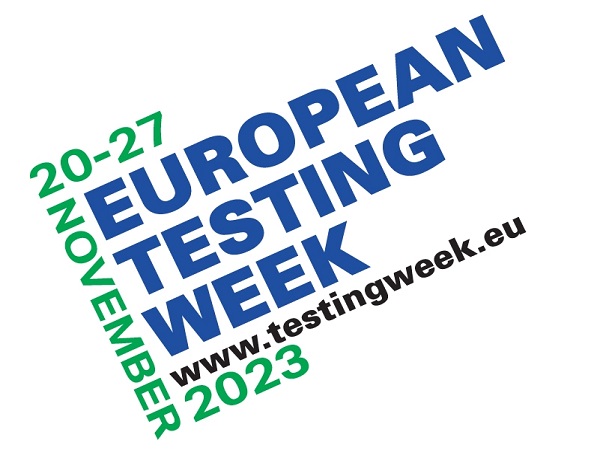
Luxembourg's Ministry of Health has announced that it is once again taking part in European Testing Week, an initiative aimed at encouraging people to get tested as early as possible for HIV and other sexually transmitted infections (STIs).
The tenth edition of European Testing Week is taking place from Monday 20 to Monday 27 November 2023.
Early detection
The Ministry of Health recalled that testing is the most effective way to detect HIV infection and prevent its transmission, as well as ensuring optimal treatment. The sooner an individual becomes aware of their infection, the sooner they can receive appropriate treatment, prevent transmission and improve their health. Today, advances in HIV treatment mean that people living with HIV can live long and healthy lives, if they are diagnosed early enough and take their treatment properly.
Increasing number of new cases in Luxembourg
According to the latest data from the SNMI national infectious diseases department, the number of HIV-infected patients in Luxembourg being treated for the first time increased considerably between 2021 and 2022: 164 people were seen for the first time (compared to 105 in 2021), 67 of whom became infected in 2022, while 97 were already infected and being treated in another country. People living with HIV who moved to Luxembourg in 2022 represented the majority of new patients being monitored, although there was also a sharp increase in new infections: 67 new cases in 2022, compared to 51 in 2021. This increase mainly affected women, who accounted for 39% of new infections and 49% of people newly included in 2022.
The Ministry of Health added that one-third of new infections in heterosexual people occurred in those over the age of 45, while the majority of male-to-male sex infections occurred in people under the age of 36. The ministry also attributed this sudden increase in the number of diagnosed HIV infections in part by the increase in screening tests and the resumption of people's mobility after the COVID-19 pandemic, as well as the reopening of meeting places.
How to get tested
Currently, there are several ways of getting tested for HIV:
- "conventional" screening via a blood test, carried out six weeks after the last risk situation, offering a "completely reliable" result;
- screening using a rapid diagnostic orientation test provides a result within minutes of a fingertip blood sample being taken and can be carried out as early as twelve weeks after the last risk situation. Individuals are advised to always consult a healthcare professional to confirm the result of a positive test;
- the HIV self-test can be obtained without a prescription from a pharmacy or by ordering from HIV Berodung. It allows individuals to carry out a screening test themselves at home and can also be carried out as early as twelve weeks after the last risk situation. It is also strongly recommended to consult a healthcare professional for interpretation.
During European Testing Week, different testing options will be available to the public in different locations:
- by rapid tests (free and anonymous; no prescription needed): on Friday 24 November 2023 from 21:00 to 23:00 at Letz Boys Bar (60 Grand-Rue, L-1660 Luxembourg);
- by blood test (free and anonymous; no prescription needed): at the Ketterthill, Bionext and Laboratoires Réunis laboratories (for the latter, one has to go to Hôpital Kirchberg and Zithaklinik).
Getting tested is also possible throughout the year:
- by rapid tests (free and anonymous; no prescription required): Mondays and Wednesdays from 17:00 to 19:00 at the Luxembourg Red Cross HIV Berodung service (94 Boulevard Général Patton, L-2316 Luxembourg); Thursdays from 12:30 to 14:30 at the Centre LGBTIQ+ CIGALE (16 Rue Notre Dame, L-2240 Luxembourg);
- by blood test (free and anonymous; no prescription required): 24/7 at the Centre Hospitalier de Luxembourg (CHL) - Unit 20 -infectious diseases (4 Rue Barblé, L-1210 Luxembourg); Monday to Friday from 07:30 to 15:30 at the National Health Laboratory (LNS; 1 Rue Louis Rech, L-3555 Dudelange); Monday to Friday from 07:00 to 17:00 at the Centre Hospitalier Emile Mayrisch (CHEM; Rue Emile Mayrisch, L-4240 Esch-sur-Alzette).








